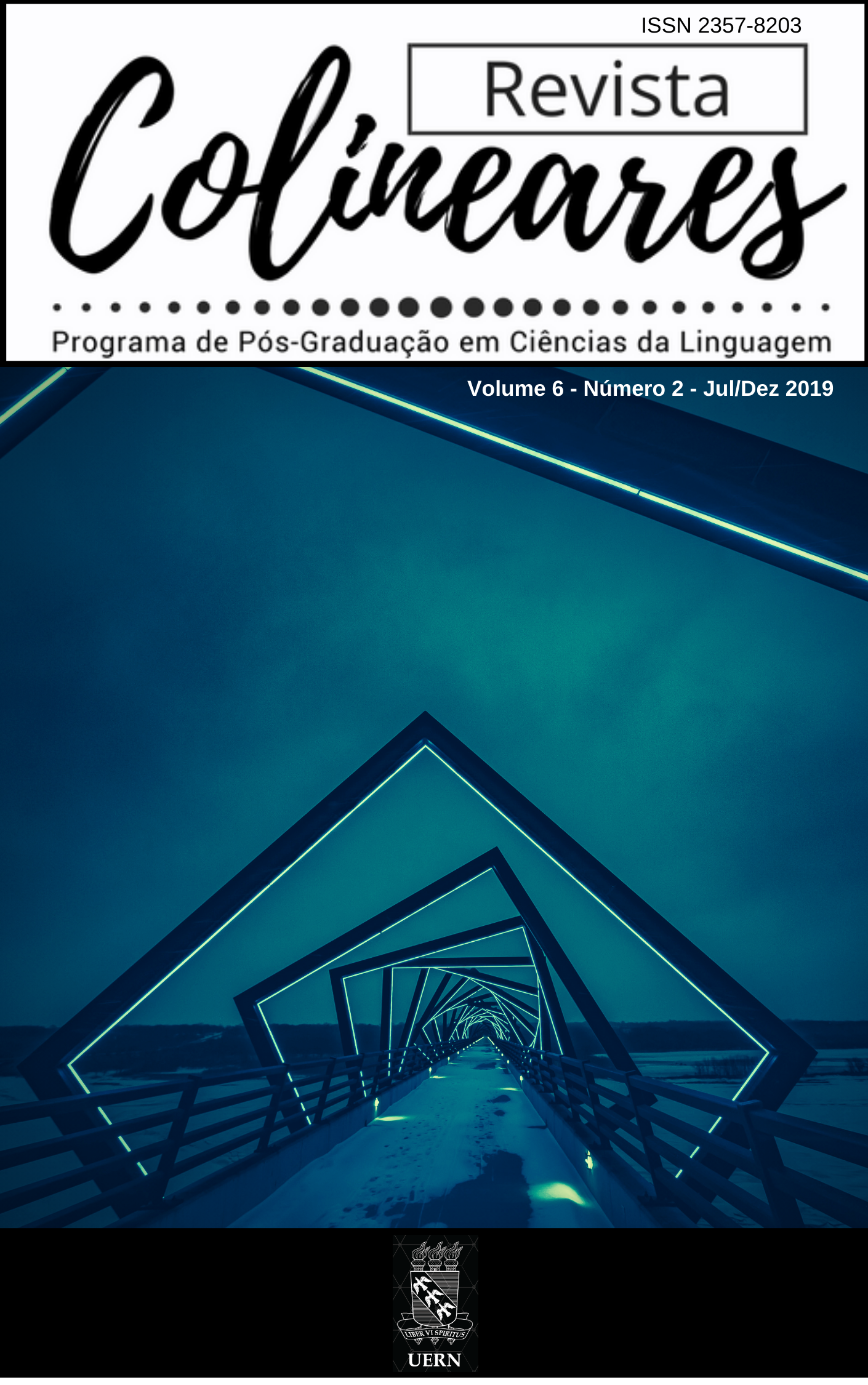Variação do modo imperativo em gêneros textuais do turismo
Palavras-chave:
Variação e mudança linguística, Gêneros textuais/discursivos do turismo, Variação do modo imperativoResumo
Este trabalho analisa, em gêneros textuais/discursivos utilizados como meio de divulgação turística, a variação de verbos no modo imperativo, que podem se apresentar associados ao subjuntivo (visite, compre, viaje, divirta-se) ou ao indicativo (visita, compra, viaja, diverte-se). O presente trabalho fundamenta-se na Teoria da Variação e Mudança Linguística (LABOV, 2008 [1972]) e vale-se dos trabalhos de Scherre (2005, 2007), Scherre et al. (2007, 2015), Alves (2009) e Evangelista (2011) para discussões sobre a variação do modo imperativo no Português Brasileiro. Para a análise, foram selecionados dois gêneros textuais/discursivos que se fazem presentes atualmente por intermédio de postagens no Facebook e vídeos no Youtube, ambos publicados por determinada agência de turismo conhecida nacionalmente. Como resultado principal, 98,1% das ocorrências gerais correspondem a imperativo subjuntivo, o que pode ser justificado pela interpretação mais assertiva que proporciona (SCHERRE, 2005, 2007; SCHERRE et al., 2007; EVANGELISTA, 2011), evitando ambiguidades e auxiliando, assim, a empresa turística em seus propósitos comunicativos.
Downloads
Referências
BARRETTO, M. Manual de iniciação ao estudo do turismo. 9. ed. Campinas: Papirus, 2000.
CALVI, M. V. Los géneros discursivos en la lengua del turismo: una propuesta de clasificación. Ibérica, n. 19, p. 9-31, 2010.
CHAMBERS, J. K. Sociolinguistic Theory: Linguistic Variation and its Social Significance. Oxford: Wiley-Blackwell, 2009 [1995].
EVANGELISTA, E. M. Fala, Vitória! - a variação do imperativo em Vitória/ES e sua posição no cenário nacional. Percursos linguísticos, v. 1, p. 62-81, 2011.
HUNTINGTON, H. E. Subversive Memes: Internet Memes as a Form of Visual Rhetoric. Selected Papers of Internet Research 14.0, Denver, USA, 2013.
LABOV, W. Padrões sociolinguísticos. Tradução de Marcos Bagno, Maria Marta Pereira Scherre e Caroline Rodrigues Cardoso. São Paulo: Parábola, 2008 [1972].
MARCUSCHI, L. A. Da fala para a escrita: atividades de retextualização. 3. ed. São Paulo: Cortez, 2001.
MARCUSCHI, L. A. Gêneros textuais: definição e funcionalidade. In: DIONÍSIO, A. P.; MACHADO, A. R.; BEZERRA, M. A. (Org.). Gêneros Textuais & Ensino. Rio de Janeiro: Lucerna, 2002. p. 19-36.
NARO, A. J. O dinamismo das línguas. In: MOLLICA, M. C.; BRAGA, M. L. (Org.) Introdução à sociolinguística: o tratamento da variação. 4. ed. São Paulo: Contexto, 2013.
SANDMANN, A. A linguagem da propaganda. 3. ed. São Paulo: Contexto, 1999.
SCHERRE, M. M. P. Doa-se lindos filhotes de poodle: variação linguística, mídia e preconceito. São Paulo: Parábola, 2005.
SCHERRE, M. M. P. Aspectos sincrônicos e diacrônicos do imperativo gramatical no Português Brasileiro. Alfa. São Paulo, 51 (1), p. 189-222, 2007.
SCHERRE, M. M. P.; et al. Reflexões sobre o imperativo em português. D.E.L.T.A., n. 23: esp., p. 193-241, 2007.
SCHERRE, M. M. P.; et al. Variação dos pronomes "tu" e "você". In: MARTINS, M. A.; ABRAÇADO, J (Org.). Mapeamento sociolinguístico do português brasileiro. São Paulo: Contexto, 2015. p. 133-172.
TARALLO, F. A pesquisa sociolinguística. 7. ed. São Paulo: Ática, 2003.
Downloads
Publicado
Como Citar
Edição
Seção
Licença
Copyright (c) 2019 Márcia Cristina do Carmo, Anna Carolina do Carmo Castro

Este trabalho está licenciado sob uma licença Creative Commons Attribution-NonCommercial-ShareAlike 4.0 International License.






